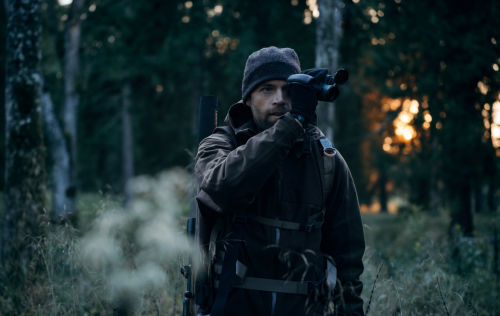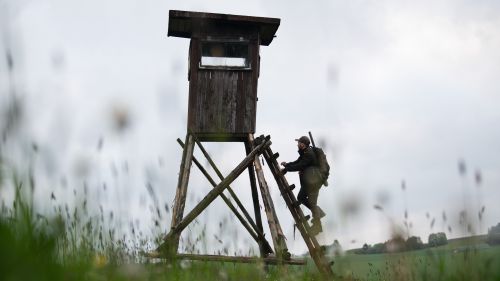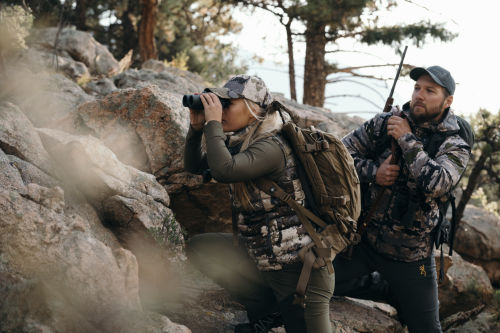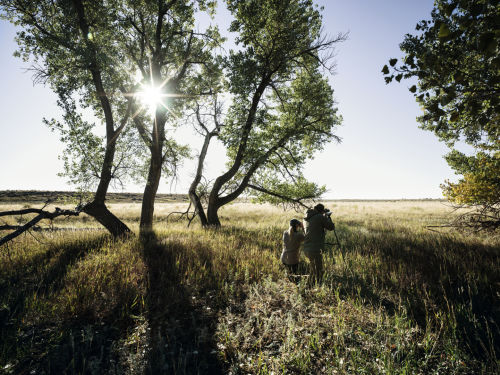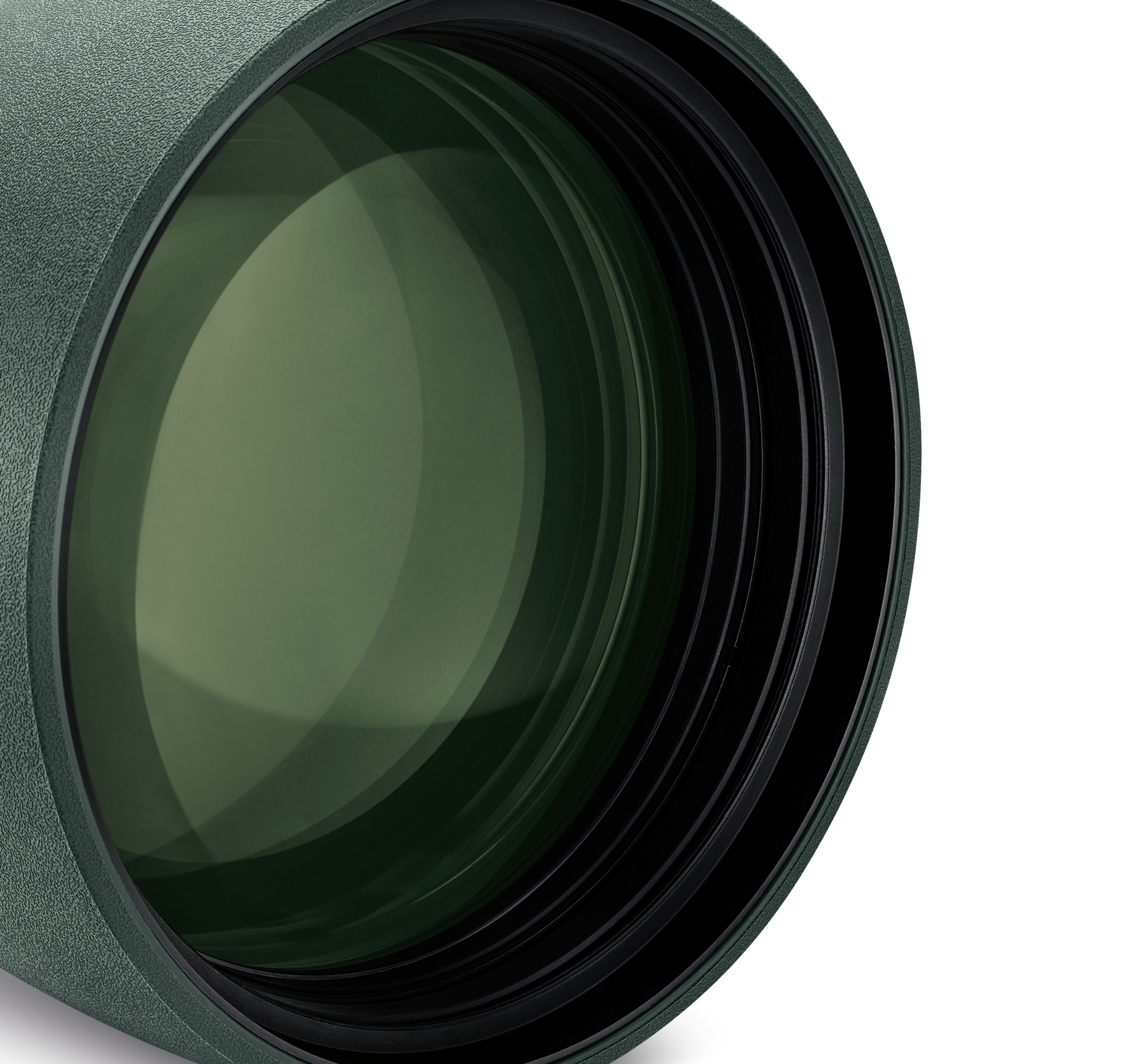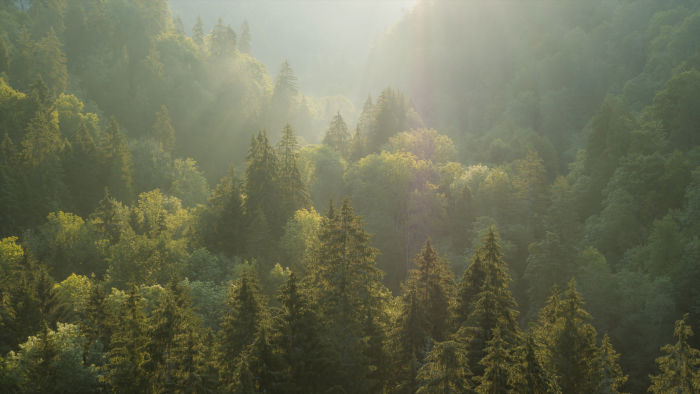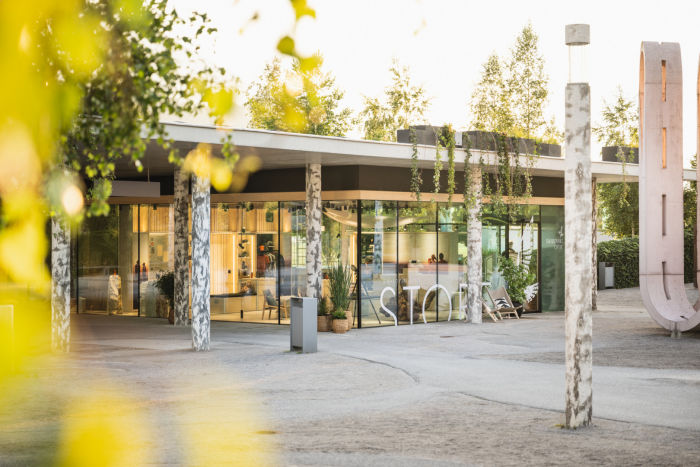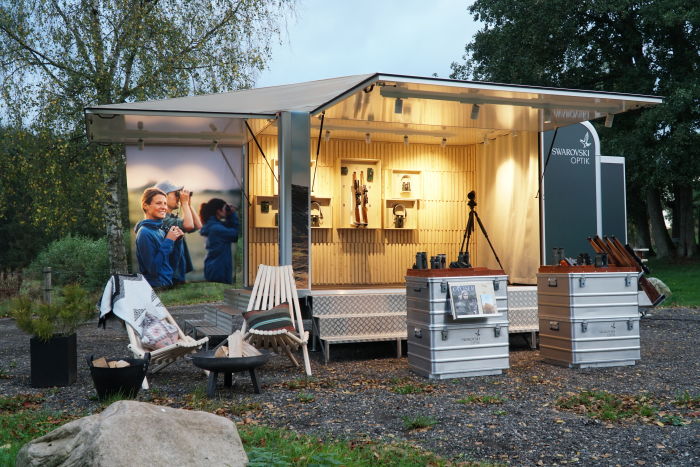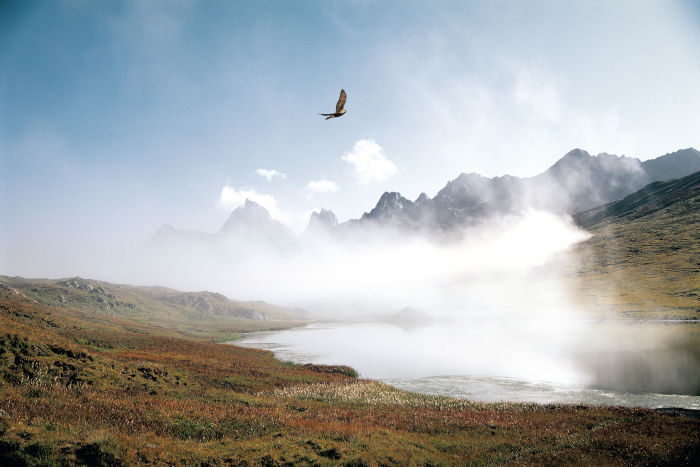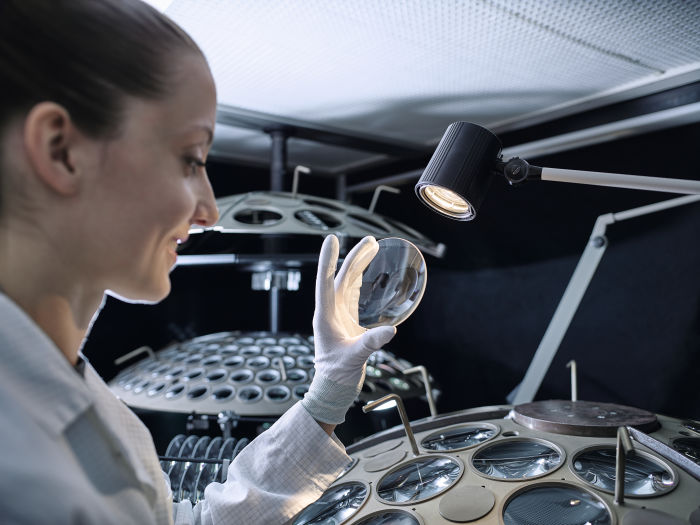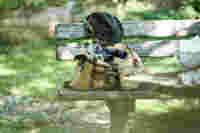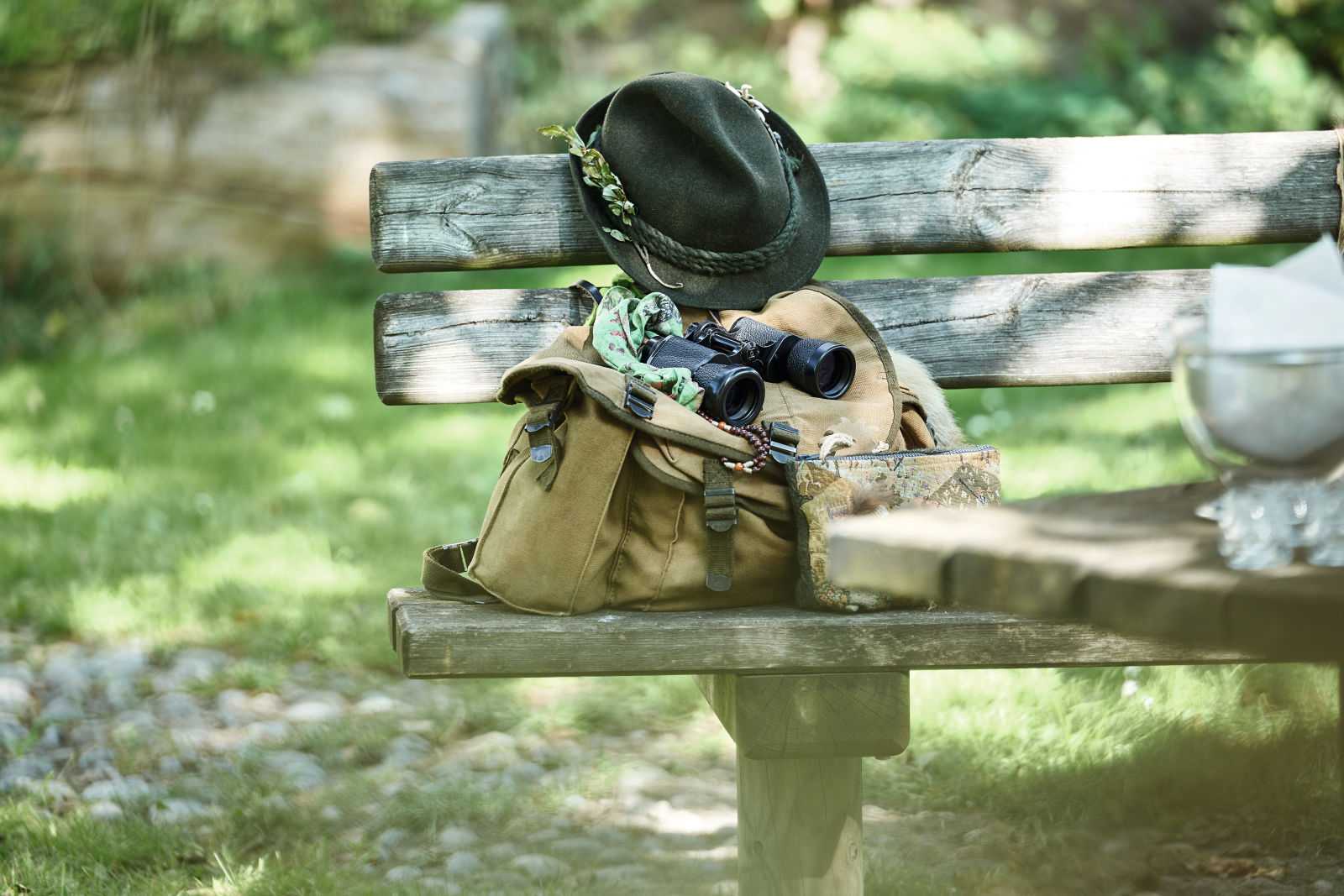Much of what Barbara Hoflacher does and says might appear contradictory at first: She is a hunter and yet a vegetarian. She works in pediatric radiology at the Innsbruck Kinderklinik and practices herbal medicine in her outdoor school. She loves the mountains and enjoys living in the city. She is fascinated by traditional remedies and researches game fats on a scientific level.

On a beautiful, sunny September day, Barbara Hoflacher took us on a journey. She not only showed us a gloriously scenic spot in the midst of the Tyrolean Alps and shared her knowledge of the “Wild Pharmacopeia,” but also sent our thinking in a new direction.
How did you, a confirmed vegetarian, decide to become a hunter and eat the game meat from animals you kill yourself?
I decided to adopt a vegetarian lifestyle 25 years ago as a reaction to large-scale livestock farming, animal transport, and so on. Then when I took the hunting examination, purely out of an interest in wild animal biology, I never considered hunting myself. However, fate placed me alongside a hunting guide who led me to a roebuck. At first, I didn’t realize that I’d actually shot it. I just noticed that the animal was no longer in my sights. Then I heard, “Good hunting! Nice shot. Well done. Now you can feed your family,” and I realized that they meant me. I will never forget how I then ate the meat from the roebuck and had the indescribable feeling that I was consuming the soul of the animal too. And since then, I have eaten the meat of animals shot by me or my friends.
In your opinion, what makes someone a good hunter?
Mindfulness, respect, and compassion for every living creature. For me, it is essential that you don’t just hunt for the sake of shooting something, perhaps just for the trophy, leaving the animal lying there, or in the garage, the basement, or the animal rendering plant, but that you use as much as possible, if not all, of the animal. That simply makes sense to me and provides my personal justification for hunting.
Could you regard that as “sustainability in hunting”?
Yes, absolutely. Let’s look at the example of the marmot that I was able to shoot. In this case, my hunting colleagues and I really do use everything. When we shoot one, the liver, heart, and kidneys are cooked that evening, if they are not given to the dog that hunted with me. As the marmot is a herbivore and does not have trichinella parasites, there is no need to examine it further. I immediately remove the visceral fat for my ointments. It is then skinned and we eat the game meat, right away. In ancient literature, great healing power is attributed to the hide, said to help especially with rheumatic aches and pains, and I use the teeth to make jewelry like this necklace. The residue left after the fat is rendered is either used as fox bait or for cat or bird food. The entire animal is used and the circle of life is closed.
You run your “Hunting Pharmacopeia” scientifically. How did that come about?
I trained in aromatherapy and wanted to research a new field for my dissertation. Because we’re here in the Alps, I had marmot oil to hand and later added deer, badger, and fox too. Since then, I have conducted intensive research in this field, referring not only to ancient literature such as Paracelsus, Lonicerus, or Hildegard of Bingen, but also looking at the scientific aspects. I have received fantastic support from Professor Teresa Valencak at the University of Veterinary Medicine in Vienna, who took an immediate interest in the project. For my game fat investigations, I always send her one raw and one rendered sample so that we can assess whether heating alters the fatty acid pattern. The analysis has shown that the water bath method does not change anything, meaning that everything is retained. And so I can use my knowledge to interpret the fatty acid analysis and compare the ancient literature with scientific findings. I am a student of nature; I’m not an expert. I research and I always want to learn, recognize, and understand more, so that I can document and pass on this knowledge.

What exactly have you researched and how do you use your findings?
Many animals are high in polyunsaturated fatty acids such as Omega-3 and Omega-6, which are essential for a healthy diet. Marmots and linseed oil contain almost the same fatty acid pattern, which is why neither can withstand high temperatures. Every wild animal fat has its own special properties. Badger and marmot possess similar compounds, known as glucocorticoids, which are substances similar to cortisone and have a pain-relieving and anti-inflammatory effect on our bodies. It is possible to make healing ointments, sun creams, or even an aluminum-free deodorant from them. Chamois tallow, for example, contains high levels of stearic acid and can be used to make smoke-free, long-burning candles. Deer, roebuck, and wild boar tallow make a wonderful basis for soothing soaps. There is also a recipe for shoe polish made of deer tallow. Deer antlers and ibex horns can be used to fumigate and disinfect rooms. Badger skin regulates microcirculation and helps to heal smoker’s leg. The possibilities really are incredible.
What effects have you observed?
There’s a great example: a friend suffered terrible burns from her thigh to her pelvis. She called me to ask if I could recommend anything. Because I had just finished a fresh batch of badger oil, I suggested that we should work together to make an ointment. We added various oils known to relieve burns to the ointment. When she went to see her dermatologist for a check-up, he was speechless because where there had been a huge burn, there was now hardly any scarring to be seen. Even in sunlight, you still can’t see any of the pigmentation damage that can often result from burns.
Your main job is at the Innsbruck Kinderklinik. In your opinion, are there convergences between conventional medicine and alternative medicine?
I am extremely pleased that treatments such as aromatherapy, in which plant oils are a key component, are now firmly established in conventional medicine. At the Innsbruck hospital, a good 50% of the institutes and departments offer aromatherapy, if the patient chooses it. For example, I work with a plastic surgeon who advocates aromatherapy or even animal oils for the treatment of scars. I would also just like to state that I don’t sell anything; I simply offer my knowledge through courses that enable those who are interested to make the products themselves.
In recent years, we have seen that people all over the world are increasingly focusing on nature. Where does this great need, this longing come from?
Anything to do with nature seems to bring us closer to our hearts once more. Or in other words, many people seem to feel this alienation from nature. Americans call it “nature deficit disorder,” and we notice that this distancing does not make us healthier; instead, we are becoming sicker or more depressed. I believe that there is something inside us that remembers that until we settled 10,000 years ago, we were nomadic hunters and gatherers for thousands of years before that, and that memory resides somewhere deep within our cells. It would be great if people who find themselves drawn back to nature would also try to respect it accordingly. However, most people are increasingly developing a sense of what they can get from nature and what they can give back to nature. I also don’t think that this is so bad, because I believe that nature will always win. The question is not whether nature will outlive us, but whether our descendants will be able to find a worthy life in the nature we leave them.
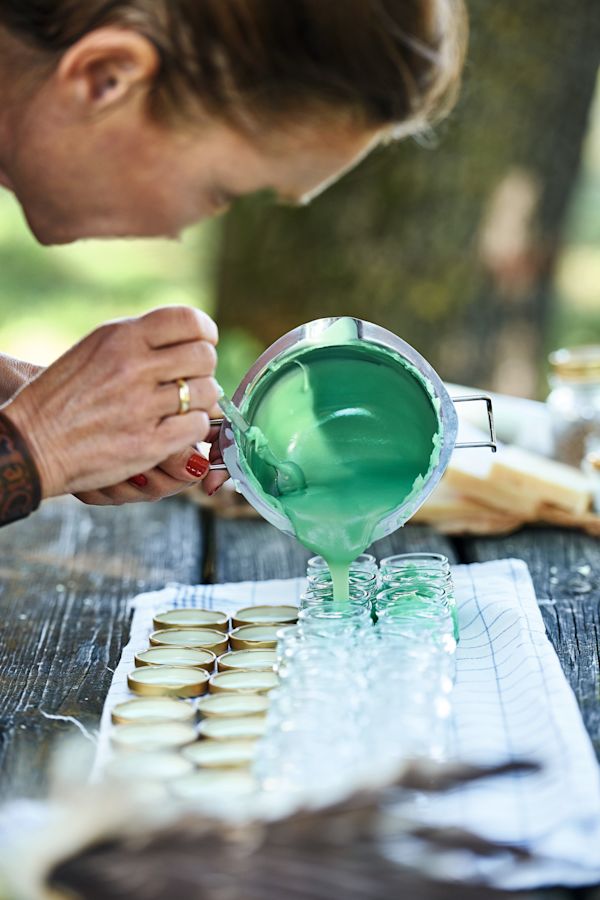
MARMOT HEALING OINTMENT
This ointment helps with
RHEUMATISM, CALCIFIED SHOULDER, ARTHRITIS, ARTHROSIS, COUGHS, HOARSENESS
Recipe marmot healing ointment
- 250 ml (8.8 fl oz) marmot oil (from the visceral and muscle fat of a marmot)
- 50 g (1.76 oz) certified organic beeswax
- 50 drops of the purest-quality organic mountain pine or Swiss stone pine essential oil
- a little bit of organic stinging nettle chlorophyll of the purest quality
The recipe can be scaled up or down as required to suit the quantity of oil you start with.
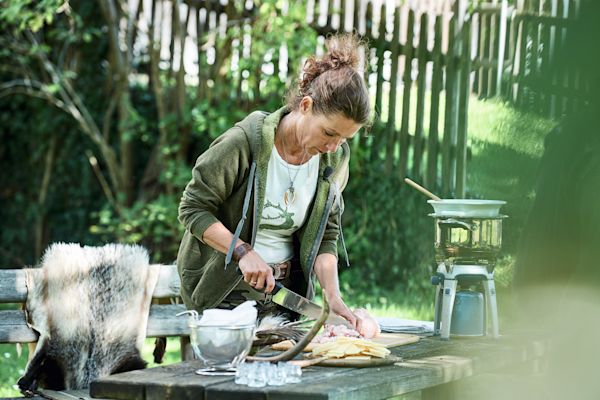
1.
To make the ointment,
first chop the muscle fat and visceral fat finely. Hygiene is of paramount importance, not only when making the ointment, but the animal should be butchered within no more than 20 minutes & the fat should be refrigerated immediately.
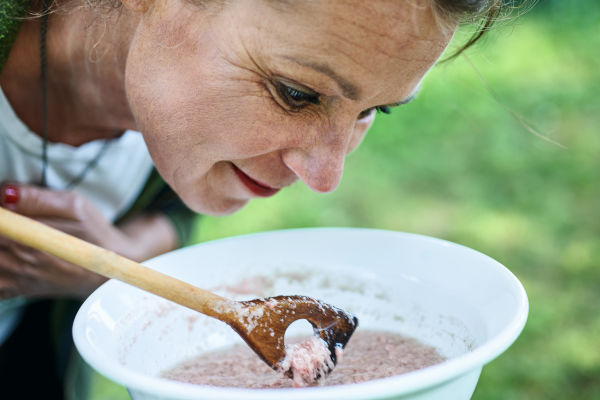
2.
Mince the fat
as finely as possible using a food processor or meat grinder. This allows the pureed fat, which resembles strawberry milk, to be processed without the need to heat it.
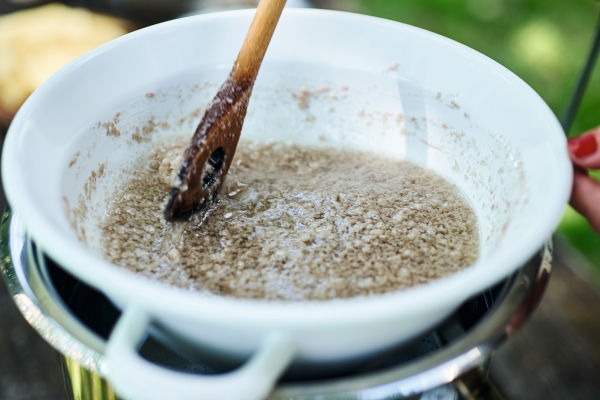
3.
Render the fat
very slowly in a water bath, making sure that the temperature is not too hot, in order to retain the valuable polyunsaturated fatty acids. This separates the connective tissue from the oily portion.
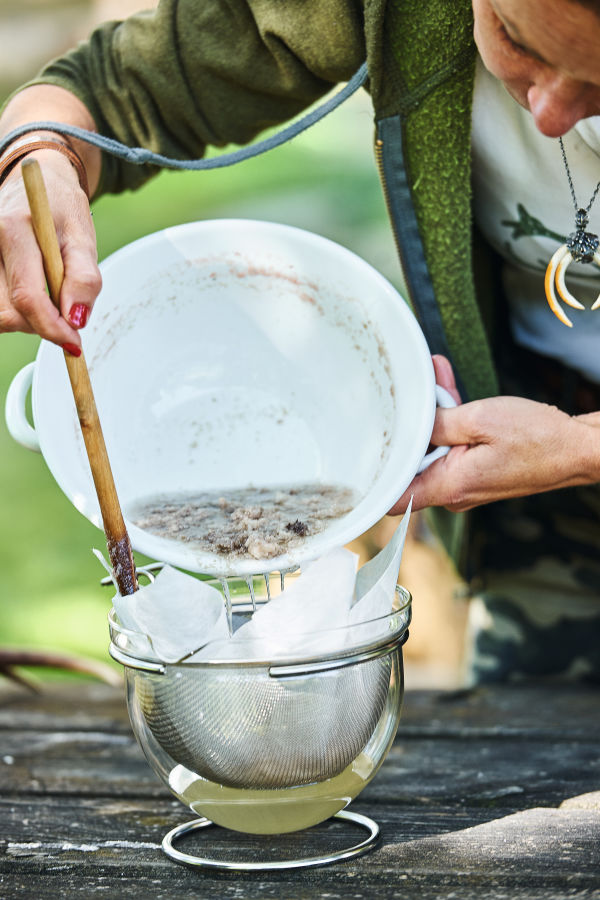
4.
Then carefully pour off the oil,
ensuring that it does not come into contact with any water as this would spoil it.
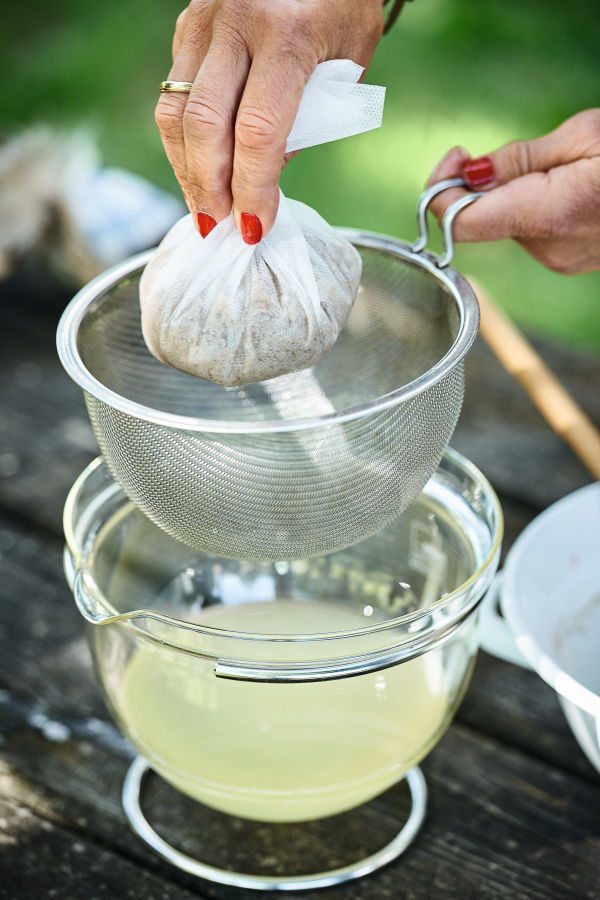
5.
Pass the oil
through a sieve. Do not press it through, as this would allow tissue fragments into the oil, which could lead to mold.

6.
The residue
can be fed to dogs, cats, or birds, or it can be used as fox bait – completing the circle of life.

7.
This is what the finished oil looks like
– it is clear and has a wonderfully pale color. Brown oil indicates too much heat when rendering.
